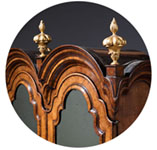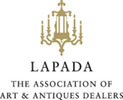William IV / Early Victorian Eight-Day Mahogany Table Clock, by Widenham, London
Sold
Request Information
Follow Us
William IV / Early Victorian Eight-Day Mahogany Table Clock, by Widenham, London
William IV/Early Victorian Table Clock by Widenham, c. 1835-40
This wonderful table clock has a spring-driven eight-day twin chain-fusee movement with going and striking trains with repetition. Unusually, it has circular plates to accommodate the case. The going train has anchor escapement with a short pendulum and stirrup regulation to facilitate adjusting the timing, which is accessible through the glazed back door. The rack striking indicates the hours of a bell, which can be repeated at all times by pulling a cord to the side of the case. The pendulum can be secured for transport with a custom made original screw.
The circular silvered brass 8″ dial is set in a beautifully engine-turned surround and has a Roman chapter ring with five-minute and minute divisions. The maker has signed the dial above and below the middle: Widenham 13 Lombard St London. The time is indicated by a fine pair of blued steel Breguet hands. It is protected by a circular glass set in a cast brass bezel, which can be locked to the side.
The mahogany-veneered oak case has a prominent base that is beautifully panelled, on which is a cylindrical part (drum head) that holds the movement with the dial. The cylindrical top seems to be mounted on a shaped support with scroll carvings. The whole rests on a substantial plain plinth.
The maker
Richard Widenham was a successful chronometer maker in London. At a young age he won the Greenwich Premium Trials in 1825. In 1830 he worked at 6 East Street in Clerkenwell and from 1835 at 13 Lombard Street. In 1832 he was appointed “Watchmaker to the Honourable Board of Admiralty” Widenham’s marine chronometers were of outstanding quality. From 1839 to 1844 he was in partnership with Thomas Adams, who was in charge of the timekeepers of Prince Albert, Queen Victoria’s husband.
Condition
Good. Wear consistent with age and use.
Dimensions
Height: 45 cm (17.72 in)
Width: 30 cm (11.82 in)
Depth: 15.5 cm (6.11 in)
Literature
Brian Loomes, Watchmakers and Clockmakers of the World, London, 2006, p. 548.
PREVIOUSLY SOLD
No Results Found
The page you requested could not be found. Try refining your search, or use the navigation above to locate the post.
No Results Found
The page you requested could not be found. Try refining your search, or use the navigation above to locate the post.
YOU MAY ALSO LIKE
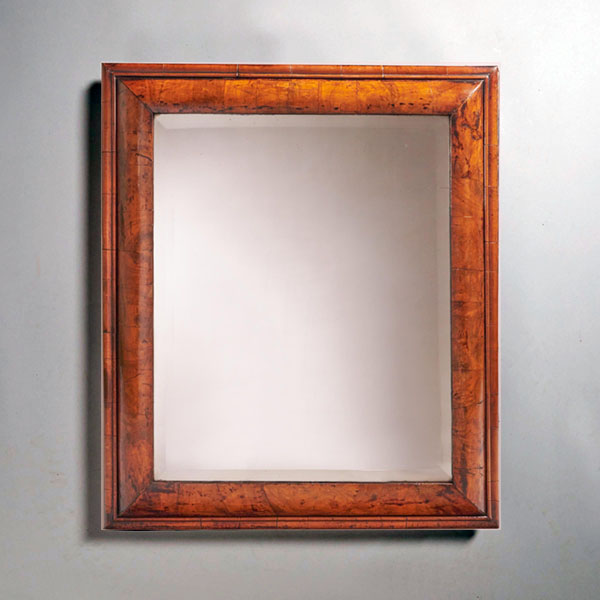
A Fine William and Mary 17th Century Figured Walnut Cushion Mirror C, 1690
A Fine William and Mary 17th Century Figured Walnut Cushion Mirror C, 1690 £6,500Follow UsA Fine William and Mary 17th Century Figured Walnut Cushion Mirror C, 1690 A large William and Mary 17th century figured walnut cushion mirror, circa...
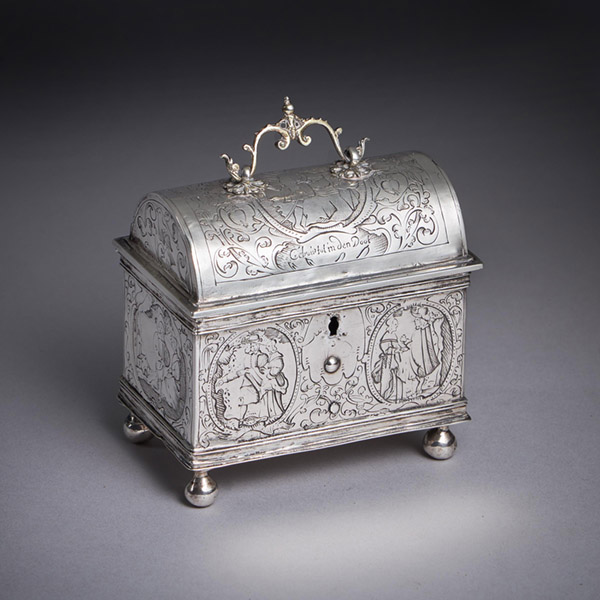
A museum-grade mid-17th century Dutch silver marriage casket or knottekistje, circa 1660
A museum-grade mid-17th century Dutch silver marriage casket or knottekistje, circa 1660 £9,500 [wpforms_selector form_id="11387" show_title="on" _builder_version="4.22.1" _module_preset="default" custom_margin="-30px||||false|false"...
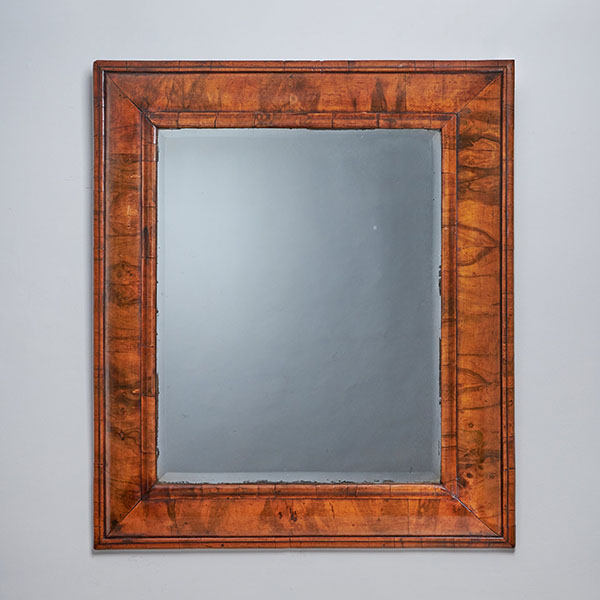
Large William and Mary 17th Century Figured Walnut Cushion Mirror c, 1690
Large William and Mary 17th Century Figured Walnut Cushion Mirror c, 1690 £7,495[wpforms_selector form_id="11387" show_title="on" _builder_version="4.22.1" _module_preset="default" custom_margin="-30px||||false|false" global_colors_info="{}"...
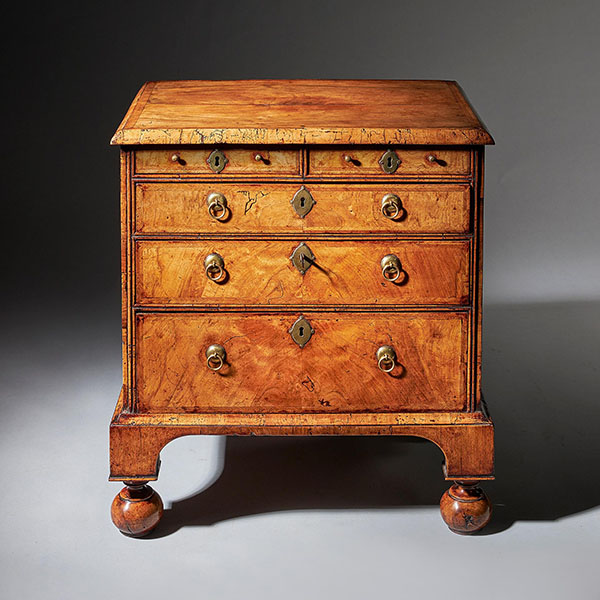
An extremely rare George I walnut chest of small proportions on ball and bracket
An extremely rare George I walnut chest of small proportions on ball and bracket £18,800[wpforms_selector form_id="11387" show_title="on" _builder_version="4.22.1" _module_preset="default" custom_margin="-30px||||false|false"...
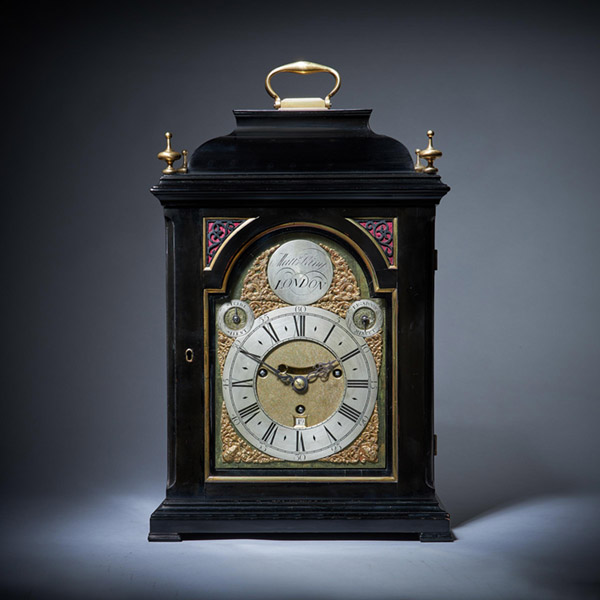
A Rare 18th Century George II Musical Table Clock by Matthew King, c. 1735.
A Rare 18th Century George II Musical Table Clock by Matthew King, c. 1735. £24,500[wpforms_selector form_id="11387" show_title="on" _builder_version="4.22.1" _module_preset="default" custom_margin="-30px||||false|false"...
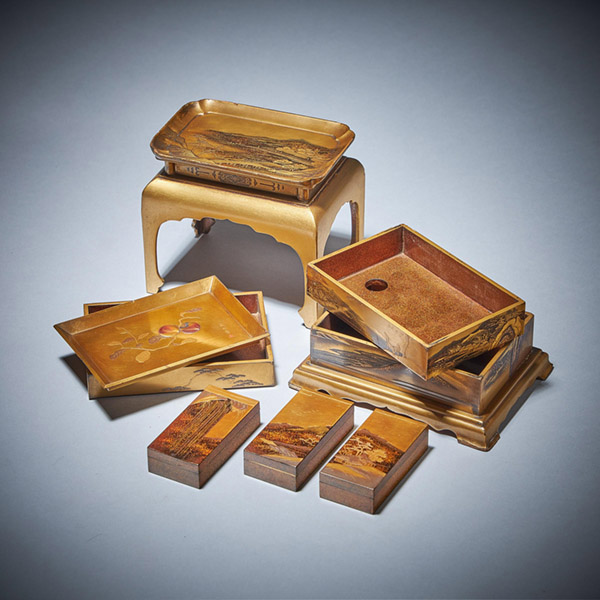
Signed Mid 19th C. Edo/Meiji Period Diminutive Lacquer Stacking Cabinet, Japan
Signed Mid 19th C. Edo/Meiji Period Diminutive Lacquer Stacking Cabinet, Japan £5,800[wpforms_selector form_id="11387" show_title="on" _builder_version="4.22.1" _module_preset="default" custom_margin="-30px||||false|false"...

A Fine William and Mary 17th Century Figured Walnut Cushion Mirror C, 1690
A Fine William and Mary 17th Century Figured Walnut Cushion Mirror C, 1690 £6,500Follow UsA Fine William and Mary 17th Century Figured Walnut Cushion Mirror C, 1690 A large William and Mary 17th century figured walnut cushion mirror, circa...

A museum-grade mid-17th century Dutch silver marriage casket or knottekistje, circa 1660
A museum-grade mid-17th century Dutch silver marriage casket or knottekistje, circa 1660 £9,500 [wpforms_selector form_id="11387" show_title="on" _builder_version="4.22.1" _module_preset="default" custom_margin="-30px||||false|false"...

Large William and Mary 17th Century Figured Walnut Cushion Mirror c, 1690
Large William and Mary 17th Century Figured Walnut Cushion Mirror c, 1690 £7,495[wpforms_selector form_id="11387" show_title="on" _builder_version="4.22.1" _module_preset="default" custom_margin="-30px||||false|false" global_colors_info="{}"...

An extremely rare George I walnut chest of small proportions on ball and bracket
An extremely rare George I walnut chest of small proportions on ball and bracket £18,800[wpforms_selector form_id="11387" show_title="on" _builder_version="4.22.1" _module_preset="default" custom_margin="-30px||||false|false"...

A Rare 18th Century George II Musical Table Clock by Matthew King, c. 1735.
A Rare 18th Century George II Musical Table Clock by Matthew King, c. 1735. £24,500[wpforms_selector form_id="11387" show_title="on" _builder_version="4.22.1" _module_preset="default" custom_margin="-30px||||false|false"...

Signed Mid 19th C. Edo/Meiji Period Diminutive Lacquer Stacking Cabinet, Japan
Signed Mid 19th C. Edo/Meiji Period Diminutive Lacquer Stacking Cabinet, Japan £5,800[wpforms_selector form_id="11387" show_title="on" _builder_version="4.22.1" _module_preset="default" custom_margin="-30px||||false|false"...
